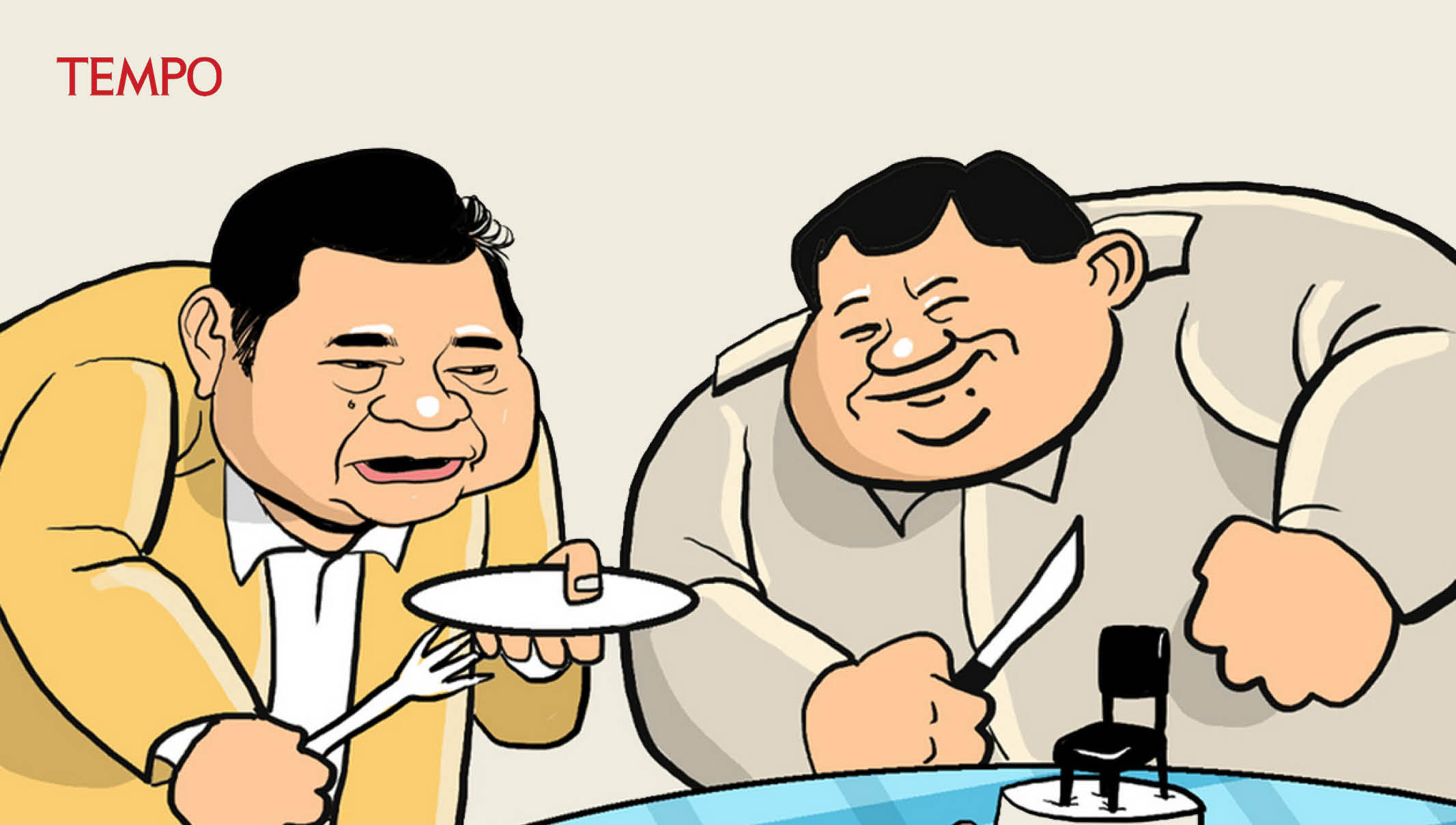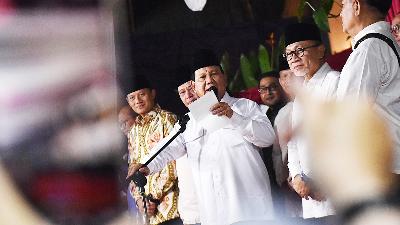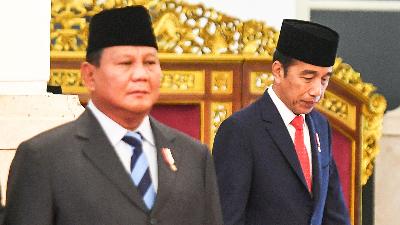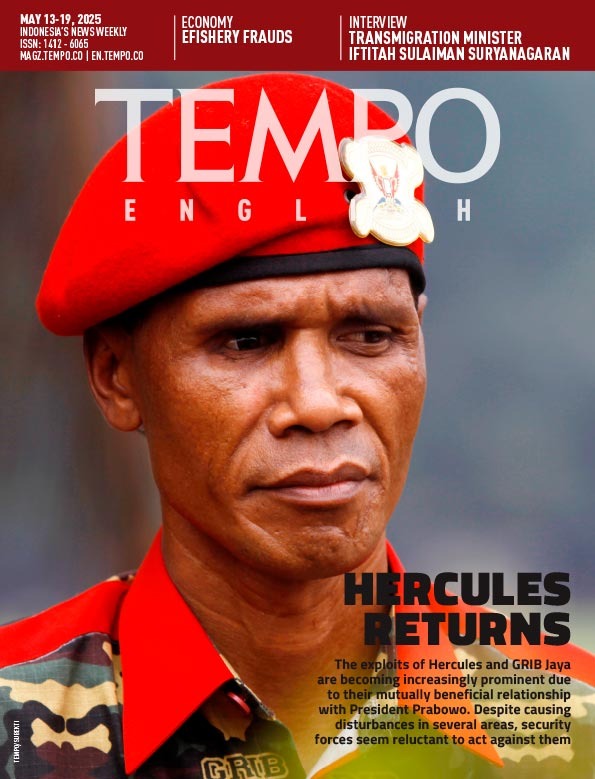Many Brokers in Indonesian Politics
Monday, March 25, 2024
Parties supporting Prabowo Subianto are vying for ministerial posts. There is a wish to see the PDI-P join the coalition.
arsip tempo : 174731426863.

EVERY five years, there is a political horse-trading in Indonesia. The practice of bargaining for cabinet posts takes place between the parties and the presidential candidate that the General Election Commission (KPU) has declared the winner of the election. The parties ask for their share based on how hard they worked to bring about a victory for the candidate. Meanwhile, non-coalition parties are offered seats to keep them ‘tame’ in the legislature.
The KPU has declared that the Prabowo Subianto-Gibran Rakabuming Raka pair won the 2024 presidential election with a majority share of the vote of 58.6 percent. Prabowo then became a broker. President Joko Widodo, who Prabowo has acknowledged was responsible for boosting his share of the vote, has put forward the names of five prospective ministers. The Golkar Party, which won the second highest number of seats in the House of Representatives (DPR), has asked for five posts. The Democrat Party, which only recently joined the coalition, increased the number of posts it is requesting because it feels they did the most to bring about Prabowo’s victory.
In nations with a presidential system of government, the president has absolute power to name his or her cabinet. In practice, this principle is not implemented. The president worries that his or her power will be precarious if there is opposition from parties in the DPR. And even if the presidential coalition has majority control of the DPR, these concerns remain: the president desires unanimous support. He does not want there to be an opposition.
As a mere party official and a president who does not have blue blood in the Indonesian Democratic Party of Struggle (PDI-P), for the last 10 years, Jokowi has realized the weakness of his political position. Therefore, he put together a grand coalition since the start of his term in office. He handed out ministerial posts to people outside the party who provided logistical support in his presidential election victories. In the DPR, Jokowi had the support of 80 percent of members. Politics died because the DPR, to use a famous lyric from Iwan Fals’ song, merely sang its agreement.
Once selected to cabinet posts, the political parties—and also nonpolitical forces such as organizations of volunteers—vied to welcome offers from the broker. These parties used policies to turn ministries into means of turning a profit. The president closed his eyes to abuses, and even quietly turned legal cases into ‘hostages’ when he later found himself at all odds with coalition parties.
Outside the DPR, Jokowi moved against legal institutions because they disrupted his grand strategy to control politics and political parties. In 2019, he weakened the Corruption Eradication Commission (KPK). He turned the police and the Attorney General’s Office into tools to use against critical politicians and civil society organizations. He put the squeeze on the judiciary. Under the control of Jokowi, the Constitutional Court passed a ruling allowing his son, who was not yet old enough to qualify, to run for the vice-presidency.
Prabowo Subianto should restore these damaged political foundations. He should abandon his desire to put together a grand coalition, including the PDI-P, the party that proposed Ganjar Pranowo for president. Prabowo must allow for opposition in the legislative so that democracy can be revived.
The composition of the supporters and opposition to the new government after election day on February 14 is fairly good. The PDI-P won the largest share of the vote and 110 seats. With the failure of the United Development Party (PPP) to enter the legislature, the only parties opposing Prabowo are those who backed Anies Baswedan, namely the National Democrat (NasDem) Party, the Justice and Prosperity Party (PKS), and the National Awakening Party (PKB), which have a total of 190 seats.
A total of 300 opposition seats facing off against 280 seats supporting Prabowo Subianto will add color to Indonesian democracy. The revival of democracy will benefit Prabowo, who has been accused of being anti-democratic.
Using his prerogative power, Prabowo has an opportunity to put together a cabinet of experts, something that has not happened in Indonesian politics since the early days of independence. He could use this cabinet of experts to bring about improvements in this Republic and attract public support at the next election in five years’ time. Therefore, his ‘reconciliation’ with NasDem Party Chair Surya Paloh is regrettable. The political horse-trading has started, and we cannot yet be optimistic about the future of Indonesia.











